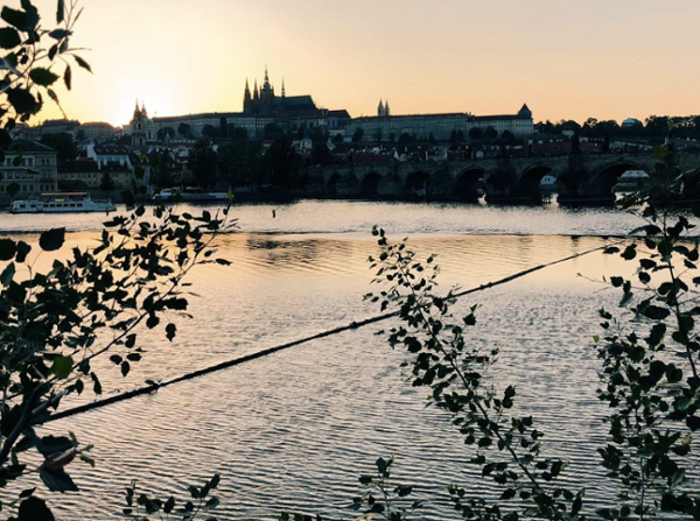Week 1: Ahoj from Prague!
I have officially completed my first week working for the CEELI Institute and am already impressed with the work being done here and with the city of Prague. When I arrived on Thursday, I was set up in my apartment for the summer, located in a beautiful public park called Havlíčkovy sady. That gave me the weekend to explore Prague and adjust to the jetlag before beginning work. On Monday, I met the CEELI team and set down with the Executive Director of CEELI to discuss some preliminary goals and research for the summer.
This week I got an introduction into one the projects I’ll begin working on this summer. CEELI received a grant from the U.S. Department of State, Bureau of Counterterrorism for a three-year project aimed at contributing to the Bureau’s goal of strengthening the capacities of criminal justice practitioners in focus regions. As part of the project, CEELI has organized and developed training workshops for judges engaged in the adjudication of cases involving terrorism and other national security issues. The programs were designed to implement Good Practice documents drafted by the Global Counterterrorism Forum (GCTF), with specific focus on the Rabat Memorandum on Good Practices for Effective Counterterrorism Practice in the Criminal Justice Sector and the Hague Memorandum on Good Practices for the Judiciary in Adjudicating Terrorism and Other National Security Offenses. The program was originally focused in the Balkan region but expanded to the Middle East and North Africa. CEELI has already conducted the trainings and curriculum and are now finalizing their work by creating resources that judges they trained may take back to their countries and use to better implement the trainings.
Part of my role is to help develop a bench checklist for judges adjudicating terrorism cases based on the Good Practice documents with references to comparative procedural codes. For example, one of the Good Practices from the Hague Memorandum is the use of Pretrial Conferences for the judge to prepare for a trial. I am working to collect guidance from international resources for things to consider when conducting pretrial conferences, as well as criminal procedure codes from various nations about what comparable pretrial procedures they may implement. These resources are meant to allow a judge to work within their country’s judicial framework to strengthen criminal proceedings, particularly in high profile terrorism cases.
CEELI is well known for their trainings with legal professionals, such as lawyers and judges, but this week I got to be part of a two-day conference to train civil society representatives from 11 Central and Eastern European countries. The goal of the conference was to provide NGOs with relevant EU legal instruments that can be used to advocate efforts against shrinking civil space in Europe. The United States was also represented to discuss potential ways that the United States can support human rights initiatives in European countries. The discusses about how various NGOs are trying to work with their governments and the reactions to NGO work was fascinating and helped bring to light some of the complexity in maintaining strong rule of law in nations impacted by former Soviet rule and influence.
Another fascinating part of this conference was an in-depth session about the European Union’s court system. Lawyers who handle EU cases presented EU Civil and Criminal Procedure 101 for the NGOs to help them understand what kind of lawsuits might be best brought to the EU. NGOs had insightful conversations into the risks associated with EU court cases. There appears to be a lack of precedence in many areas of law in the EU, so NGOs raised a lot of concern about using the EU court system as a tool, feeling that the outcome may be too unpredictable and result in precedence they do not agree with.
